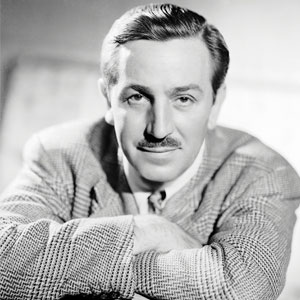When I wrote my Ruining Beauty post, there were folks who complained that I shouldn’t review a movie I have not seen. I felt they had a good point. Sometimes things sound bad in review, but work well in the actual story. But I also felt that I didn’t want to pay money to see a movie I suspected I might not enjoy.
A young woman I know works at a movie theater. This is her last week, as she is quitting, but she offered me one last free ticket to see the movie of my choice before she left. (Her job included a free ticket for a friend each week.) My daughter asked her for a ticket for me to see Beauty and the Beast. (She knows I love the cartoon version.) So, I decided to go.
Incidentally, my daughter saw the live-action Beauty and the Beast. She was bored. “You like that kind of romance and music,” she said, when she came home. “I don’t like.” Not sure what to make of that, but even she talked about how beautiful it was.
It was going to be beautiful, right?
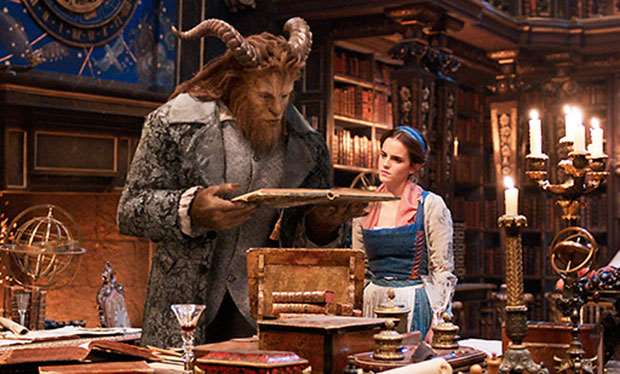
How bad could it be?
Imagine that you had been given a really handsome shoe. It looked like one of your favorite shoes from years past, but it was even more beautiful, more finel-made…only every time you took a step, it hurt your foot.
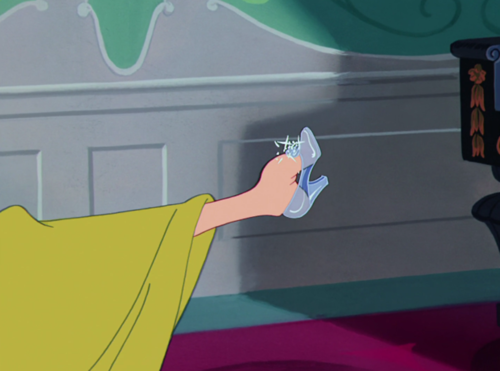
Watching the live action Beauty and the Beast was like that.
First, it was beautiful, utterly breathtaking. Almost every scene was a feast for the eyes. And certain things were really well-done. Emma Tompson as Mrs. Potts was spot on (even while washing a spot off), though a few of her lines were given to the feather duster. Lumiere also was wonderful, though not as funny because of changes they made in the characters around him.
I am not going to go through the film scene by scene, that would be far too painful—for both of us. Rather, I want to mention briefly the categories of errors I saw over and over:
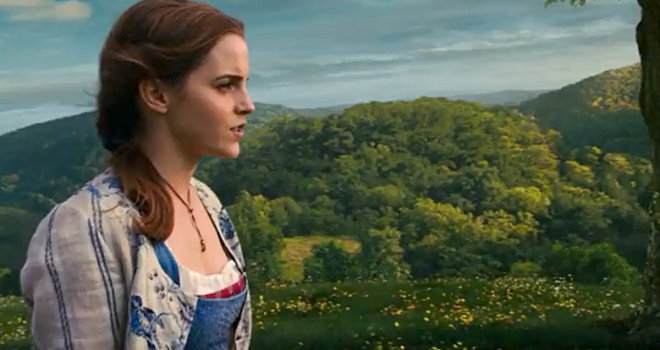
I tried to find a picture to show how angry she looked much of the time,
but none of those shots are online.
1) Girl Power Rules—anything dainty, feminine, or gentle that Belle did, any time a male character might have been in charge, had to be removed or dealt with badly.
Belle could not handle Gaston subtly, while being amused and above the fray, as in the original. She had to be angry and bossy.
She couldn’t look lovely in a long skirt. She has to wear modern boots, which jarred me out of the picture every time I saw them—though it took me a while to realize what was wrong—and have her skirt pinned up to show off her bloomers on one leg in an outfit that the real Belle would never have worn.
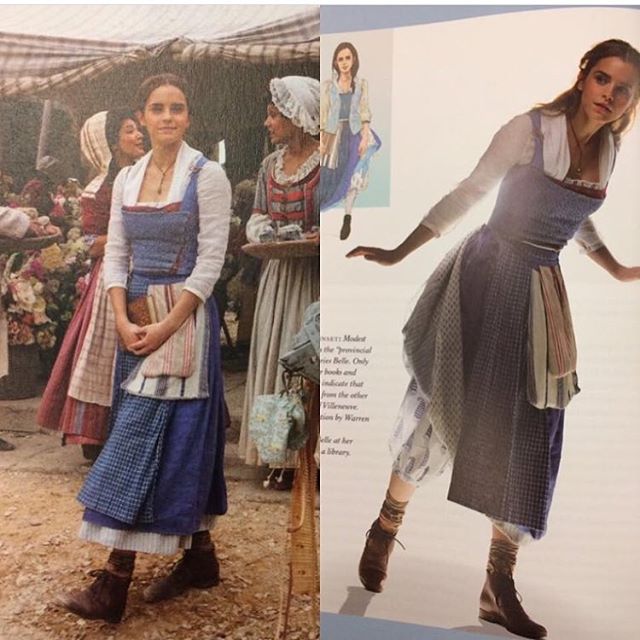
Belle's weird and unattractive (from some angles) dress.
compare with–look how long these dressed are, and no hiking boots:
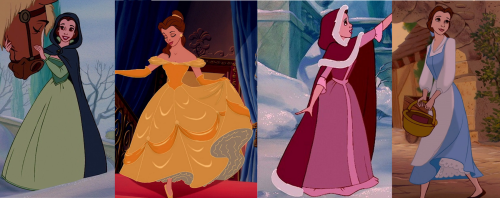
She cannot give her word to stay in her father’s place (giving her father a reason to not immediately rush back to try to rescue her.) She has to not give her word, push her father so that he stumbles out of the cell and falls down, and then try to climb out a window.
So now she’s there because she’s tougher than an old man, not because she is a girl of integrity, who keeps her word until she is truly frightened. (Which also didn’t work. Live-action Belle just looked petulant and angry and like she is leaving the castle because the Beast told her to go, so she’s going! Not because she was frightened. So when she says, “You shouldn’t have frightened me.” The line doesn’t make sense.)
She can’t be cheerful and filled with joy. She has to be angry and petulant. Funny thing though—for all their attempt to make her top dog, the Belle who got angry and seemed resentful after Gaston expressed his desire to marry her seemed much weaker, much less in charge of her life, than the cheerful girl who just laughed off the foolishness of Gaston’s pretensions.
It was as if the scriptwriters were working from a bible that said: “The female character must have agency at all times,” which doesn’t make for good storytelling, especially about a young woman in an earlier age encountering a huge, scary beast.
Worse, when plot and feminism came into conflict, the plot always lost. (This is why we object to message fiction, folks. It’s not the message that is so bad, it is when the message shoves the plot aside and knocks it down the stairs.)
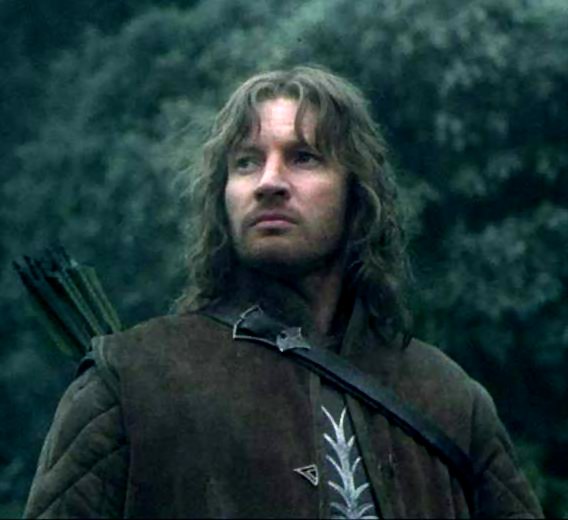
We can't have a noble character, that would confuse the viewers!
2) The Faramir Effect—Anyone here remember The Lord of the Rings movie, where they totally, utterly ruined the character of Faramir. Why? The reason given was, “To show that the ring was truly evil, everyone had to be tempted by it.”
This principle shows a lack of the subtleties of storytelling. But it was the ruling principle in the live-action Beauty and the Beast.
Belle couldn’t be odd and beloved—because the prosaic locals didn’t understand her love of books but still valued the pretty, cheerful girl. She had to be hated by villagers who sent all their boys to school in lockstep but made the girls sit in the town center doing laundry. Villagers who threw her laundry into the mud when she dare teach a girl to read! (Shocked gasp!)
Because she can be the only reader—no longer the only bookish girl—boys going to school were added, girls slaving were added, teaching another girl to read was verboten, and during LeFou’s song, he has to stop to make a crack about being illiterate because…if even a soldier like LeFou can read, it will take away from how evil the One Ring is…er, I mean how odd Belle is.
Gaston cannot be a vain man who is a little too taken with himself because everyone in town adores him. He has to be a bully, a lout. But!—ONLY when it doesn’t violate Rule #1. When he’s among other people he swaggers and bullies, but when he talks to Super Fem…er, sorry, Belle, he has to stand several steps below her and plead.
(It was the weirdest scene in the movie: Alpha male Gaston suddenly transforming into a whimpering beta wolf. Which made Belle’s petulance at his imploring seem all the more like an overreaction.)
Gaston cannot come up with a “cunning plan” to trick Belle’s father into agreeing to let him marry his daughter. He has to try to murder Maurice and then bully LeFou into lying about it.
He cannot be admired by LeFou and the bimbettes, who he treats with jovial good will. He has to pettily have his horse kick mud on the women and abandon LeFou at the end to be squashed by a piano.
Oh…and there there’s the bimbettes. They can’t be sweet, cute girls who swoon over Gaston and cry when they think he’s going to pick someone else. They have to be mean-spirited witches, like Cinderella’s stepsisters, totally unpleasant and not cute in the least.
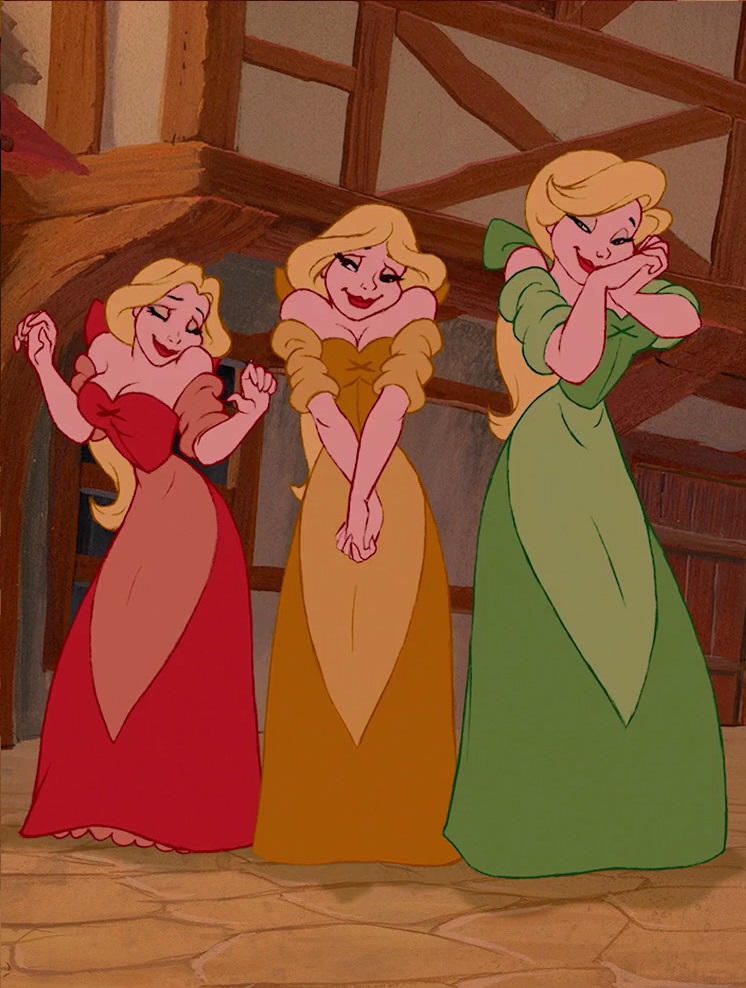
Vs.
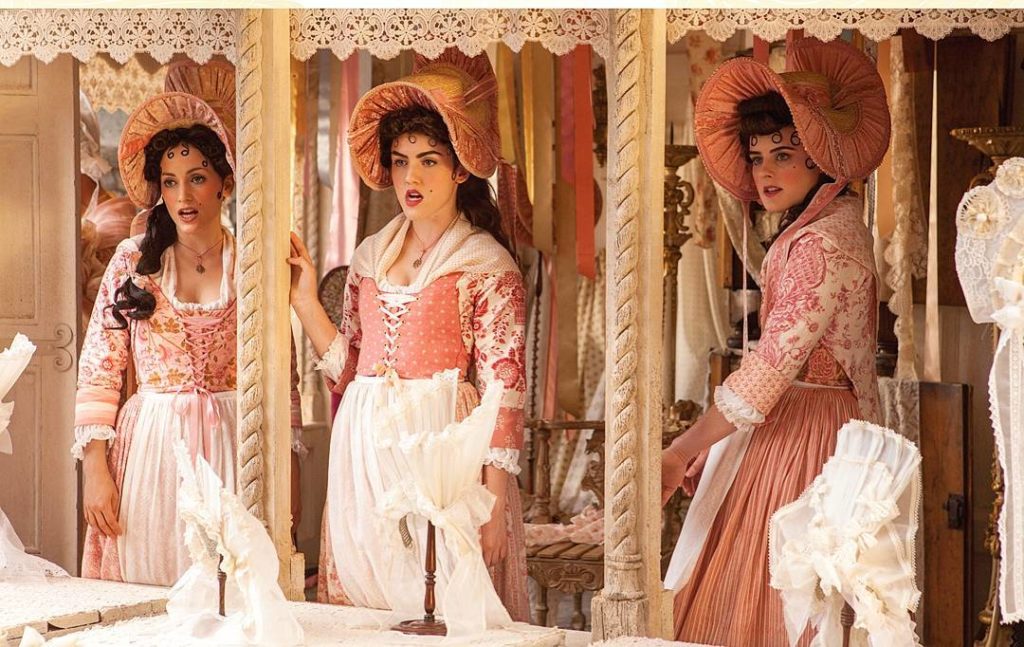
These are two cases, but there were many. Each time the plot, characters, etc. came in conflict with the Faramir Effect, the plot, etc. took a dive.
3) Mommy! Someone’s Mean On The Internet!—I know many people are fond of TV Tropes, but words cannot express the horror and dismay I felt when I first saw that such a thing existed, and time has only proven my fear to be well-founded.
Yes, it can be fun to glance at the website, but the first thing I thought when I saw it was: Oh, no! Now, people are going to start picking apart stories like corpses, and labeling them rather than enjoying them.
Tropes are like the tricks of the trade of a magician. If someone laid out every move every magician made, with arrows showing where to look at all times to see the trick, no one would enjoy the show any more.
When people stop and guffaw, “Oh, look! He used the Mom’s-Head’s-On-Backwards Trope!” (or whatever), they stop enjoying the magic.
But worse, far worse than anything I previously imagined, is when DISNEY starts worrying about the tropes.
The last several Disney movies I have seen have all had the same phenomena over and over—someone is so self-conscious about the tools of their trade that they have to stop and point a finger and try to be funny about it. It is as if they are ashamed at their storytelling, instead of caught in the magic.
The worst offender of this was Moana. The self-conscious pokes at their own tropes—breaking the fourth wall to do it—really took me out of the movie, (except for one—where they didn’t break the fourth wall, which I actually thought was quite funny.)
But Beauty and the Beast did this, too, though not as badly.
It’s not just tropes…one can see in these movies where they are painstakingly rushing to fill in things that they have been criticized online for not having. Instead of ignoring their critics and telling a good story, they rushed to fill in every single little thing that might not make sense.
Nobody stops in the middle of spelling their boss’s name in song to suddenly announce that they are illiterate, unless the writers are mocking the subject. That kind of mocking really draws the viewer out of the movie. (Not if it were Aladdin, where the genie did a lot of it, but when it happens out of nowhere. And so stupidly. Either have him spell the name, or leave that section out of the song. And the genie wasn’t embarrassed about what he did.)
The snow in the scene with Belle and the Beast in the original was just to show time was passing. Here it had to be explained.
The Beast was a selfish child who had temper tantrums in the original, and his servants were his loyal servants. Here, he had to be this way because of his wicked father (okay…how did the father come to be that way? Another wicked father? Is it wicked fathers all the way down?) and the servants had to be guilty of something.
Belle’s mother was dead in the original. Here this had to be explained—in a scene that did NOTHING for the movie.
Don’t get me wrong, it was a beautiful scene. Really beautiful and haunting. But it didn’t change Belle, alter her outlook or her purpose. It didn’t even help her connect with the Beast—who had also lost his mother as a young man. It had no effect because it was added in without the story being rewritten to support it.
And this, even though they did set up that she was curious about her mother—but there was no follow through, no result from this that altered her life. It was too important a thing to be touched on so lightly and was treated too lightly in the story to be worth the amount of time it took.
What it did feel like was: “People on the Internet have criticized us for not saying more about Belle’s mother…so here’s an Easter egg for them.”
But, as John said, it made the father look like a coward—fleeing rather than staying with his dying wife?
And many moments were like that…as if they were rushing to address every criticism rather than trying to write a good story. And, of course, by doing this, they opened the way for new criticisms.
If Belle can get to Paris and pick up a rose-shaped rattle with a magic book, why didn’t she use the book to instantly reach her father? (Which is kind of a bigger loophole than any in the original.)
Nor was this scene added without a price. By adding distractions, additional plotlines, they took attention away from the secondary characters. In the original, Cogsworth was the butler and in charge, and Lumiere was always going around his back.—which made him witty and clever and a delightful rogue.
In the live-action version, Cogsworth is just some kind of hanger-on who only has a few lines and never acts very pompous…and therefore is less endearing and funny. Much more time is spent developing the servants’s lives in the live-action, but somehow at the loss of character personality and wit.
In conclusion:
There were many, many more things—some good, many bad—that I don’t have time to mention. As a writer, I found some of the things that seemed wrong, the pinches in the shoe, a bit frightening. I wasn’t sure how their decisions differed from the kind of decision I make in my writing…and I wondered how a writer tells when they are overdoing something vs. making it clear enough.
And yet, the result was: that so many notes just seemed to be out of place, off key.
Overall, the feeling I walked away with was: This had been a marvelous movie that had all sorts of things arbitrarily stuck into it to fill out agendas other than “tell a good story”—rather like taking a nice leather shoe and stretching it to fit a donkey instead of a human foot and then trying to wear it.
Poor Walt.
He would have been appalled.
